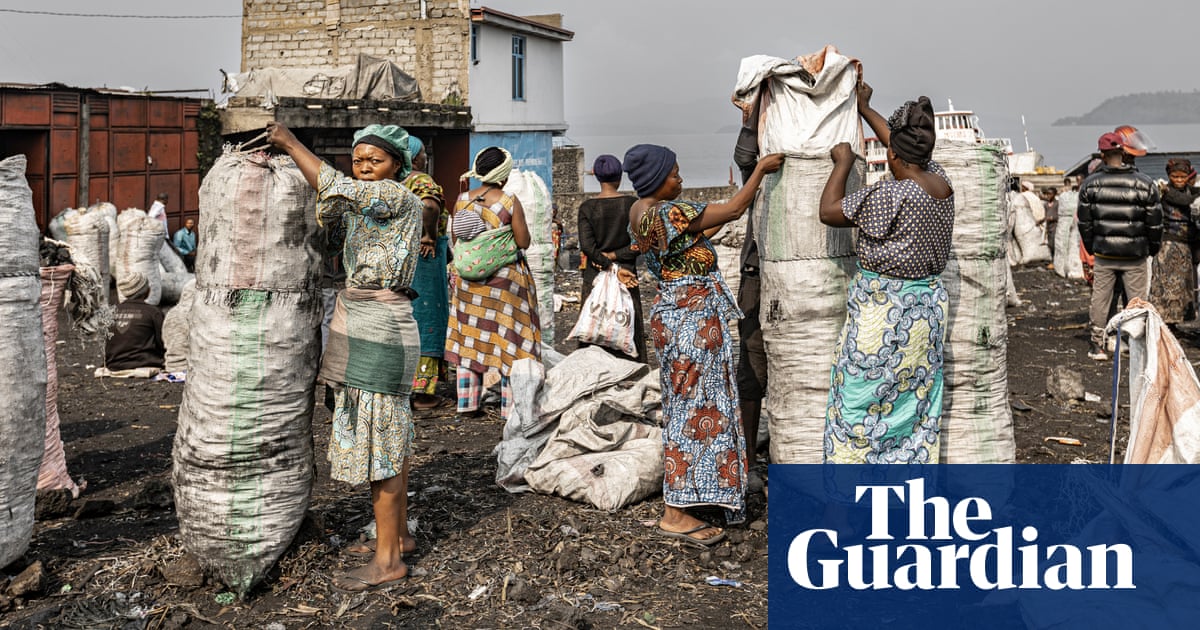Photo credit: www.theguardian.com
Desperation Grows in Goma as M23 Rebels Take Control
Residents of Goma, a city in the Democratic Republic of the Congo bordering Rwanda, are grappling with intense fear and severe hunger following the recent takeover by the M23 rebel group. The insurgency has disrupted daily life, leaving many in a state of despair.
Judith Saima, a merchant aged 28, expressed the hopelessness felt by many in the city. “We are very afraid. This situation feels hopeless,” she stated, reflecting the sentiments of a community that has only just experienced heavy combat, which resulted in casualties and bodies left on the streets.
Access to food has become critical, as trade and agricultural routes have been cut off due to the violence. “If this continues, we will all die, either from stray bullets or starvation,” warned Ngise Ngeleka, a 26-year-old student. She recounted a neighbor who was shot, a reminder of the danger lurking in their community.
Amid these challenges, Adeline Tuma, a mother of four, shared her struggles: “We have nothing left to eat. My children cry from hunger. I make porridge without sugar. My shop has been looted. I curse this war.” Her narrative underscores the grim reality facing families in Goma.
The United Nations reported on Friday that the death toll from the conflict has climbed to at least 700, with 2,800 individuals injured since combat erupted on Sunday. An assessment conducted by the World Health Organization and the Congolese government revealed the extent of the crisis.
Transportation routes have been severely affected; boat travel, a common method for carrying supplies, has been halted since the M23 occupied Minova, a crucial port on Lake Kivu. Additionally, a key border crossing connecting Goma to Gisenyi in Rwanda has been blocked, further isolating residents.
Basic utilities like water and electricity were lost on Sunday. While power and mobile data services began to return later in the week, access to clean water remains uncertain. Some residents have resorted to drawing water from Lake Kivu as they await restored supplies.
Historically, M23 is one of several ethnic Tutsi-led militias that have emerged in eastern DRC, continuing a cycle of conflict that dates back to a 2003 peace agreement that failed to quell violence. The Rwandan government provides backing for these forces, citing a need to eliminate groups associated with the 1994 genocide. However, the Congolese government and various UN reports allege that Rwanda exploits these groups to access and extract local minerals.
The UN has expressed heightened concern over the escalating violence in eastern DRC, specifically the M23’s southward advance toward Bukavu, the capital of South Kivu province. Reports from the UN rights office indicate that incidents of summary executions and sexual violence have surged, emphasizing the ongoing humanitarian crisis. “Conflict-related sexual violence has been an appalling feature of armed conflict in eastern DRC for decades,” noted a spokesperson, highlighting the toll on vulnerable populations.
For many residents, the current situation evokes haunting memories of the M23’s previous seizure of Goma in 2012, which lasted only ten days. Elisabeth Sikuli, reflecting on that experience, commented, “This time, the situation is far worse. We spent three days hiding under our beds, without food.”
Hospitals are struggling to manage the influx of injured individuals, with humanitarian organizations calling for immediate relief efforts as displaced populations remain without aid. In a stark image of the chaos, discarded military uniforms have been repurposed by street children, some of whom have taken to looting abandoned shops.
“Although there are signs of reprieve in Goma after days of intense fighting, the need for shelter, food, water, medical supplies, and protection in the city remains overwhelming,” stated Rose Tchwenko, the Mercy Corps country director for DRC, emphasizing the urgency of the situation.
In a surprising turn, M23 has announced its intent to maintain control of the city. Corneille Nangaa, leader of the political coalition supporting the M23, called on residents to resume normal activities and promised to reinstate educational services swiftly and establish humanitarian corridors for those displaced by conflict.
This latest development raises concerns about a potential reversion to conditions reminiscent of the 1990s and 2000s when Rwanda and Uganda, along with their proxy forces, dominated trade and governance in the DRC’s eastern regions.
Remarkably, not all Goma residents oppose the M23’s presence. A senior UN official remarked that many citizens, weary of instability, might welcome improved security and trade. The sentiment was echoed by Olakire Senga, a doctor, who criticized the Congolese government for its failure to safeguard its citizens, stating, “I think we need to assess the maturity of those arriving and join them.”
Source
www.theguardian.com

